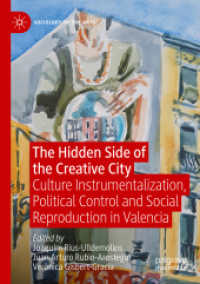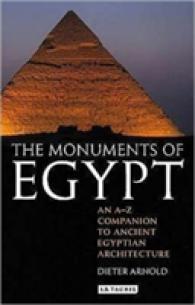Full Description
Interpreter-Mediated Healthcare Communication engages conceptually and empirically with the ongoing debate concerning the 'influence' occasioned by the participation of an interpreter - whether professionally trained or as a lay family member - in healthcare delivery. Healthcare delivery, especially in the primary care sector, is increasingly becoming multicultural and multilingual in character. This global reality manifests itself as a communicative challenge in interpreter-mediated healthcare consultations, involving professional as well as family members in the role of interpreters. In the context of this book (previously published as a special issue of the journal Communication & Medicine), interpreter-mediated healthcare consultations are seen simultaneously as multilingual and multiparty interactions, as well as being dyadic and triadic communication.
The introductory editorial sets the scene by foregrounding the core notion of 'communicative vulnerability' of all participants - the care recipient, the healthcare provider and the interpreter - in relation to the emergent interactional subtleties at the spheres of participation and interaction. In addition to the 'brought along' communicative vulnerability of the participants, the interactional trajectory itself, iteratively, contributes to such vulnerability at the contingent level. Especially, the interpreter routinely shifts between 'just being a linguistic/literal medium/conduit' to 'strategically being a communicative mediator/broker', potentially influencing the processes and outcomes of a given healthcare encounter.
The contributors to the volume, representing different parts of the world (Australia, Italy, The Netherlands, Sweden, UK and USA), address, in different ways, the complexities surrounding the concepts of 'participation', 'mediation' and 'shifts in roles/frames/footings' and their interactional manifestation/consequence. As the empirical studies illustrate, the interpreters - professional or otherwise - position themselves actively in the interaction as their roles and participation formats become situationally and culturally embedded, albeit in varying degrees in different phases of the consultation. The contributions engage along a variety of axes as far as the data settings are concerned - professional vs lay interpreters, primary vs. tertiary healthcare setting and low-stake vs. high-stake encounters. The issues raised in the book - albeit dealing mainly within the confines of the western healthcare landscape - point in the direction of how 'communicative vulnerability' may be heightened in relation to the currently dominant paradigms of patient-centredness, patient autonomy and shared decision making.
Contents
1. Communicative Vulnerability and its Mutation in Interpreter-mediated Healthcare Encounters
Srikant Sarangi
2. Who is Talking Now? Role Expectations and Role Materializations in Interpreter-mediated Healthcare Encounters
Claudia V. Angelelli (Heriot-Watt University)
3. Understanding Interpreters' Actions in Context
Galina B. Bolden (Rutgers University)
4. Managing Uncertainty in Healthcare Interpreter-mediated Interaction: On Rendering Question-answer Sequences
Claudio Baraldi and Laura Gavioli (both at University of Modena and Reggio Emilia)
5. Involvement, Trust and Topic Control in Interpreter-mediated Healthcare Encounters
Cecilia Wadensjö (Stockholm University)
6. Mutual (mis)understanding in Interpreting in Consultations between Turkish Immigrant Patients and Dutch General Practitioners
Sione Twilt (Rotterdam University of Applied Sciences), Ludwien Meeuwesen (Utrecht University), Jan D. ten Thije (Utrecht University) and Hans Harmsen (Erasmus University)
7. Third Party Insurance? Interactional Role Alignment in Family Member Mediated Primary Care Consultations
Celia Roberts (Kings College London) and Srikant Sarangi
8. The Comparison of Shared Decision Making in Monolingual and Bilingual Health Encounters
Charlene Pope (Medical University of South Carolina) and Jason Roberson (Holy Cross Faith Memorial Episcopal Church)
9. Triadic Medical Interaction with a Bilingual Doctor
Louisa Willoughby (Monash University), Marisa Cordella (University of Queensland), Simon Musgrave (Monash University) and Julie Bradshaw (Monash University)
10. Interpreter-mediated Aphasia Assessments: Mismatches in Frames and Professional Orientations
Peter Roger (Macquarie University) and Chris Code (Exeter University)







